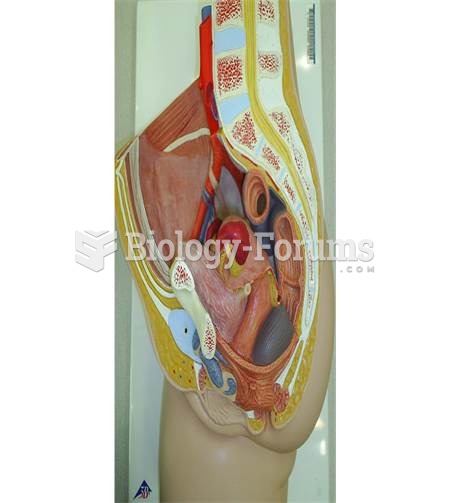|
|
|
If you could remove all of your skin, it would weigh up to 5 pounds.
In the ancient and medieval periods, dysentery killed about ? of all babies before they reach 12 months of age. The disease was transferred through contaminated drinking water, because there was no way to adequately dispose of sewage, which contaminated the water.
Approximately one in three babies in the United States is now delivered by cesarean section. The number of cesarean sections in the United States has risen 46% since 1996.
Many of the drugs used by neuroscientists are derived from toxic plants and venomous animals (such as snakes, spiders, snails, and puffer fish).
The strongest synthetic topical retinoid drug available, tazarotene, is used to treat sun-damaged skin, acne, and psoriasis.
 Coronary artery bypass graft (CABG). The grafts are often obtained from the patient’s saphenous vein
Coronary artery bypass graft (CABG). The grafts are often obtained from the patient’s saphenous vein
 In many industrialized nations, men are having children at older ages, raising the possibility of ...
In many industrialized nations, men are having children at older ages, raising the possibility of ...





